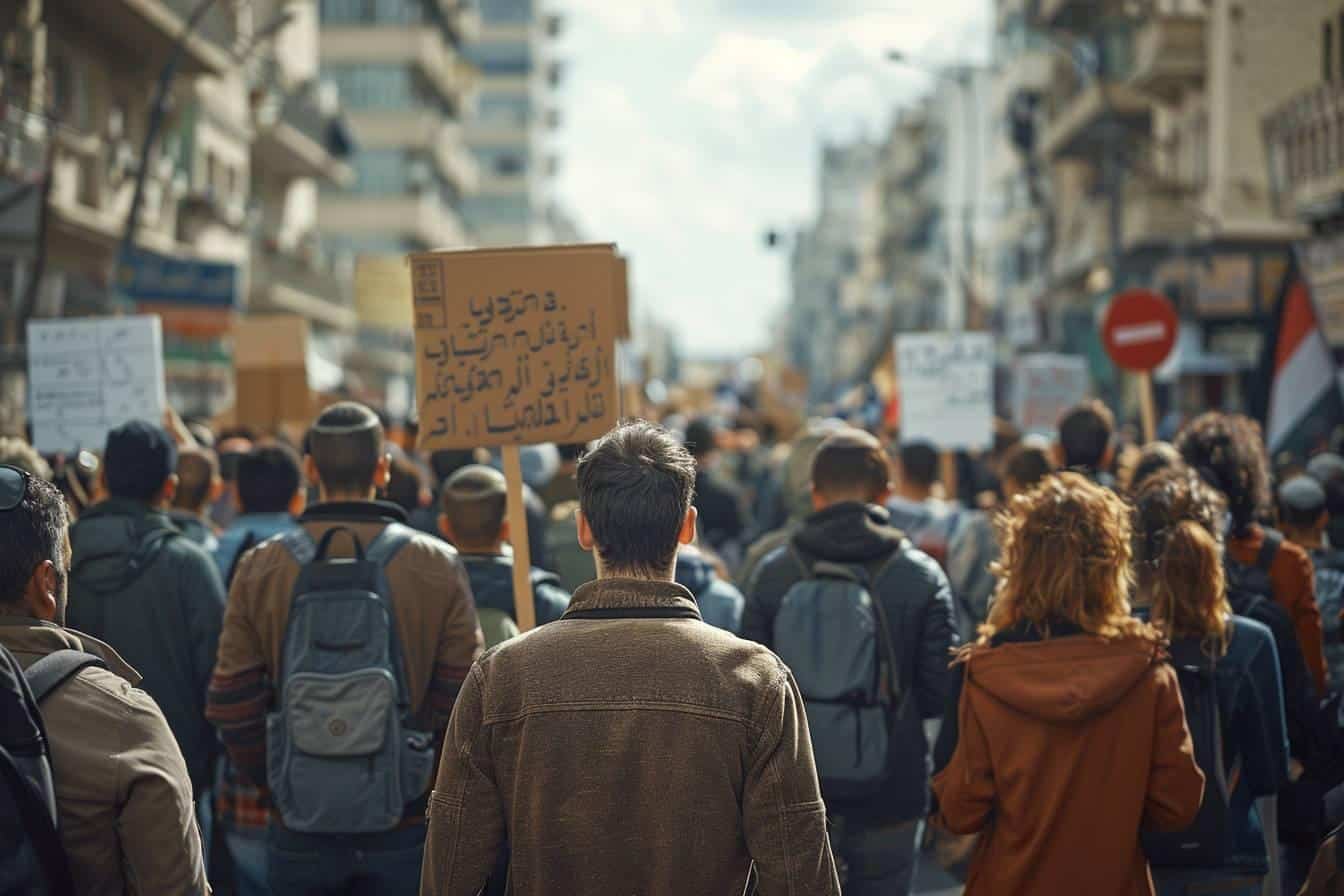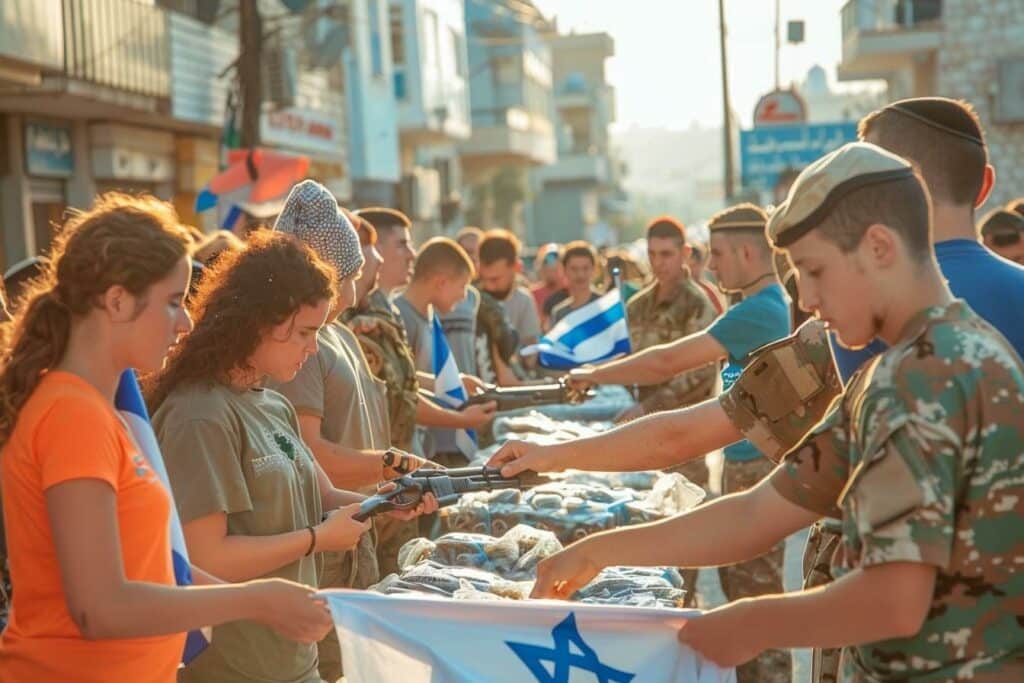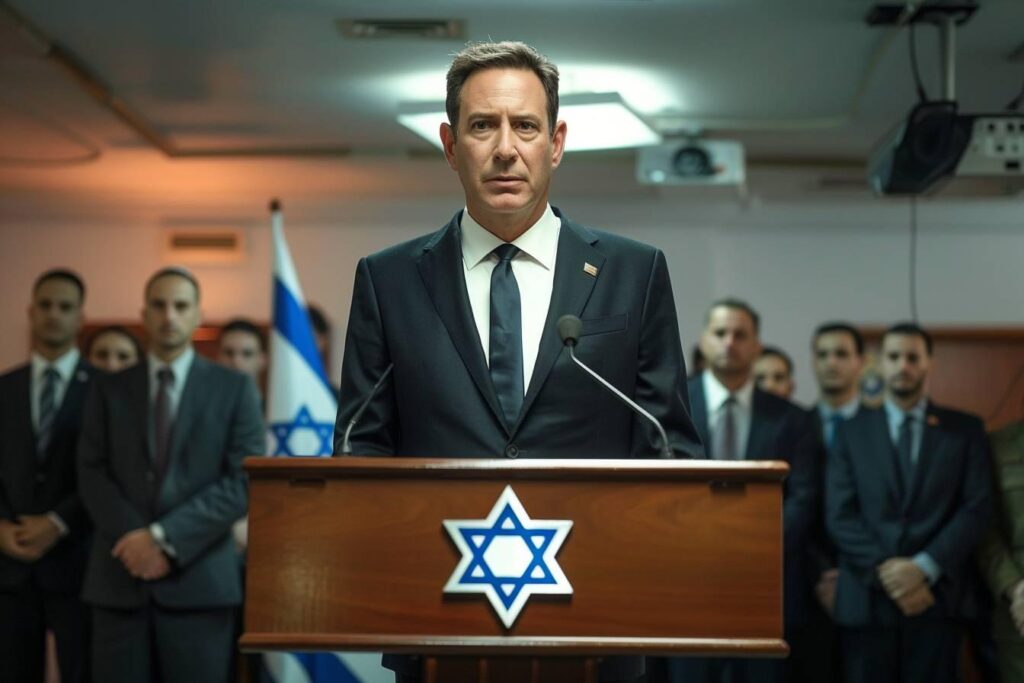The Jewish Community’s Role in Supporting Israeli Soldiers Amid Rising Tensions

As tensions escalate along the northern borders of Israel, particularly with Hezbollah, a notable shift has been observed in the dynamics of military support. This isn’t just about government action but involves heartfelt community involvement, where the global Jewish diaspora plays a pivotal role. The recent surge in civilian donations to aid Israeli soldiers is a testament to a community united by faith and concern for their homeland’s security.
Understanding the Conflict and Its Demands
The conflict between Israel and Hezbollah has been a long-standing issue, characterized by intermittent bouts of violence and prolonged periods of tense calm. The region’s complex geopolitical dynamics necessitate constant vigilance and preparedness from the Israeli Defense Forces (IDF). However, recent developments indicate that the usual governmental provisions for military personnel are no longer sufficient, leading to an unprecedented reliance on civilian contributions.
Soldiers stationed in the north are now facing challenges that require not just standard military equipment but also specialized gear tailored to the unique demands of their environment. This includes advanced surveillance systems, drones for better area monitoring, and enhanced protective gear capable of withstanding the threats posed by Hezbollah’s arsenal.
Rising to Meet New Challenges: The Role of Civilian Donations
The involvement of the Jewish community in supporting Israeli soldiers through donations is both a symbol of solidarity and a practical response to an escalating need. Initiatives like Operation Israel and the Discretionary Fund for Israel have become critical in bridging the gap between what the military can supply and what the soldiers require.
- Operation Israel: Spearheaded by Adi Vaxman, this initiative has seen a tripling of demand in recent days. The number of requests for support doubled in September compared to August, highlighting the growing urgency.
- The Discretionary Fund for Israel: This fund recently launched an ambitious $8 million fundraising campaign aimed specifically at procuring high-demand items such as drones and special protective netting.
Items being requested by soldiers include not only advanced weaponry and surveillance technologies but also basic necessities tailored to combat conditions such as specific types of batteries, body armor enhancements like ceramic plates, and weather-appropriate clothing and gear.
Jewish Diaspora’s Involvement: A Global Effort
The global Jewish community has responded with significant enthusiasm to these calls for support. Donations have poured in from across the world, driven by a collective effort to ensure the safety and effectiveness of Israeli soldiers. This engagement is facilitated through synagogues, community centers, and online platforms that organize fundraising and material support.
However, this surge in civilian participation has also sparked a debate about the adequacy of military provisioning by the Israeli government itself. Some donors express concerns regarding why one of the world’s most advanced armies is seeking civilian help to equip its personnel adequately.
Impact on Military Preparedness and Moral
The influx of civilian donations does more than just fill a logistical gap; it boosts the morale of soldiers. Knowing that people thousands of miles away care about their well-being and are willing to contribute can be a significant morale booster for troops stationed in high-risk zones.
This act of giving has also strengthened the bonds within the Jewish community globally, reinforcing connections between Israel and international supporters. The situation has fostered a sense of unity and shared purpose, crucial during times of conflict.
Critical Perspectives and Future Directions
While the immediate response has been overwhelmingly positive, there are calls for a more sustainable approach to military provisioning. Critics argue that reliance on ad hoc donations might not be viable or sufficient to meet all operational challenges in the long run.
The Israeli military and government are thus under scrutiny to reassess their logistical strategies and ensure that troops are well-equipped through official channels without over-relying on civilian funding.
Conclusion: Harnessing Community Power for National Security
The current situation highlights how diaspora communities can play a significant role in national defense beyond mere financial contributions. It underscores a powerful mobilization of resources that reflects deep communal ties and commitment to homeland security.
As this dynamic unfolds, it will be essential to monitor how these contributions are managed and integrated into the broader defense strategy of Israel. Moreover, it sets a precedent for how global communities can contribute to national efforts in innovative ways, potentially changing traditional paradigms of military support and diaspora engagement.



